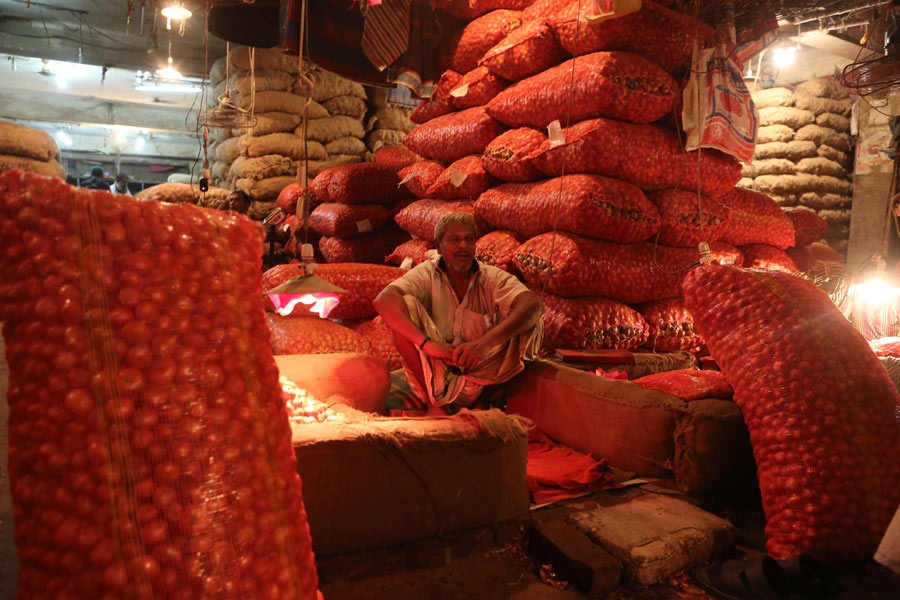Almost every year onion makes screaming headlines for outrageous increases in its price. This year is no exception to the rule. Onion prices have gone up by Tk 15-20 to Tk 65-75 a kilogram within a couple of days. What is, however, most disquieting is the syndicated nature of abnormal price hike of this common cooking ingredient. There may indeed be genuine reasons for rendering a commodity dear if the crop fails or otherwise gets damaged in warehouses on account of natural disasters like floods. This year there is no rational explanation for the sudden spurt of onion price. The country has had a good harvest of onion and its total production amounted to 1.8 million tonnes as against a demand for 2.2-2.4 million tonnes. Reportedly, the country's import volume of onion is 1.1 million tonnes from India alone and hence there should be no deficit. Against 0.4-0.6 million tonnes of deficit, the country should have had a surplus stock.
Then what is the explanation for the latest increase in onion price? Actually business syndicates are always on the lookout for a pretext to raise prices of any commodity - not just onion alone. This time they have got a strong one - the Indian government has raised the minimum export price to $850 a tonne against the background of an abnormal price rise of this commodity in its domestic market. The same happened last year. With the price rise of onion in India, its snowballing effect saw an escalation of price in Bangladesh market too. But last year shortfall in domestic production could be cited as a reason for the increased price here. This time such arguments cannot be entertained. Without market manipulation, price of onion or for that matter any essential commodity cannot be increased when the supply is more than adequate. This is however not the first time that onion price has gone up this year. During the first round of price hike, a flimsy pretext was put forward to the effect that the supply line was affected by bad weather and road conditions.
What is highly frustrating is that business syndications are getting on with their ways when producers or farmers are deprived of their fair shares. Blatant deprivation of paddy growers perpetuated by middlemen and millers and wholesalers of rice can be cited as an example. When paddy does not bring production cost for farmers, millers and others make profit - at times windfall - by keeping the price tags of different varieties of rice at a level inconsistent with the paddy prices.
In case of sudden price rise of onion, its rationale has become the greatest casualty. The price has gone up now. But import orders were finalised long ago when the price was low. At the time of imports the price was well below Tk 30 a kilogram. There is no reason for traders to argue that they have imported onion after the Indian government's decision to raise the export price. In fact, the day the Indian government announced the increased export price, onion registered a jump of Tk 10 a kilo in Bangladesh market. If the wholesalers did not go for the hike, the retailers could not do so. Market monitoring is so lax here that business syndicates take undue advantages. Where there is no crisis, an artificial crisis is created to fleece consumers. This malpractice should be dealt with an iron hand.


